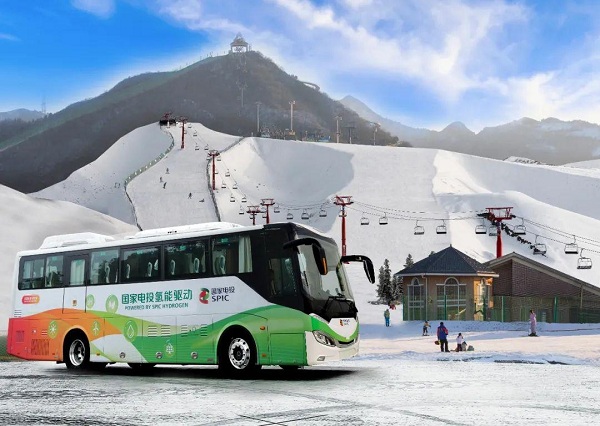

One of 150 hydrogen energy buses serving the Beijing 2022 Winter Olympics. [Photo provided to en.whkfq.gov.cn]
There were 150 hydrogen energy buses operating during the Beijing 2022 Winter Olympics. They are able to recharge in just 10 minutes, drive for up to 600 kilometers before needing to recharge, and function well even at low temperatures and high altitudes.
The 15 buses made 7,205 trips and transported 160,700 passengers during the games. They were independently developed by SPIC Hydrogen Energy Co, and one of its core components – the proton exchange membrane – was manufactured at the SPIC Central China Hydrogen Energy Industrial Base, which is based in the Wuhan Economic & Technological Development Zone.
After five years of development, SPIC Hydrogen Energy Co is involved in the entire hydrogen energy industry, including the production, transportation, utilization and refueling of hydrogen, and has been leading China in fuel cell research and manufacturing and hydrogen refueling equipment and services.
"Our proton exchange membrane is globally competitive based on a series of key indicators, while its price is only half that of similar overseas products," said Zhang Yinguang, general manager of SPIC Hydrogen Energy Co.
According to him, the company has reached an agreement with Dongfeng Motor Co and will promote the use of 1,000 hydrogen fuel cell heavy trucks in two years for Wuhan's logistics. In addition, the city is expected to boast 3,000 hydrogen fuel cell cars by 2025.